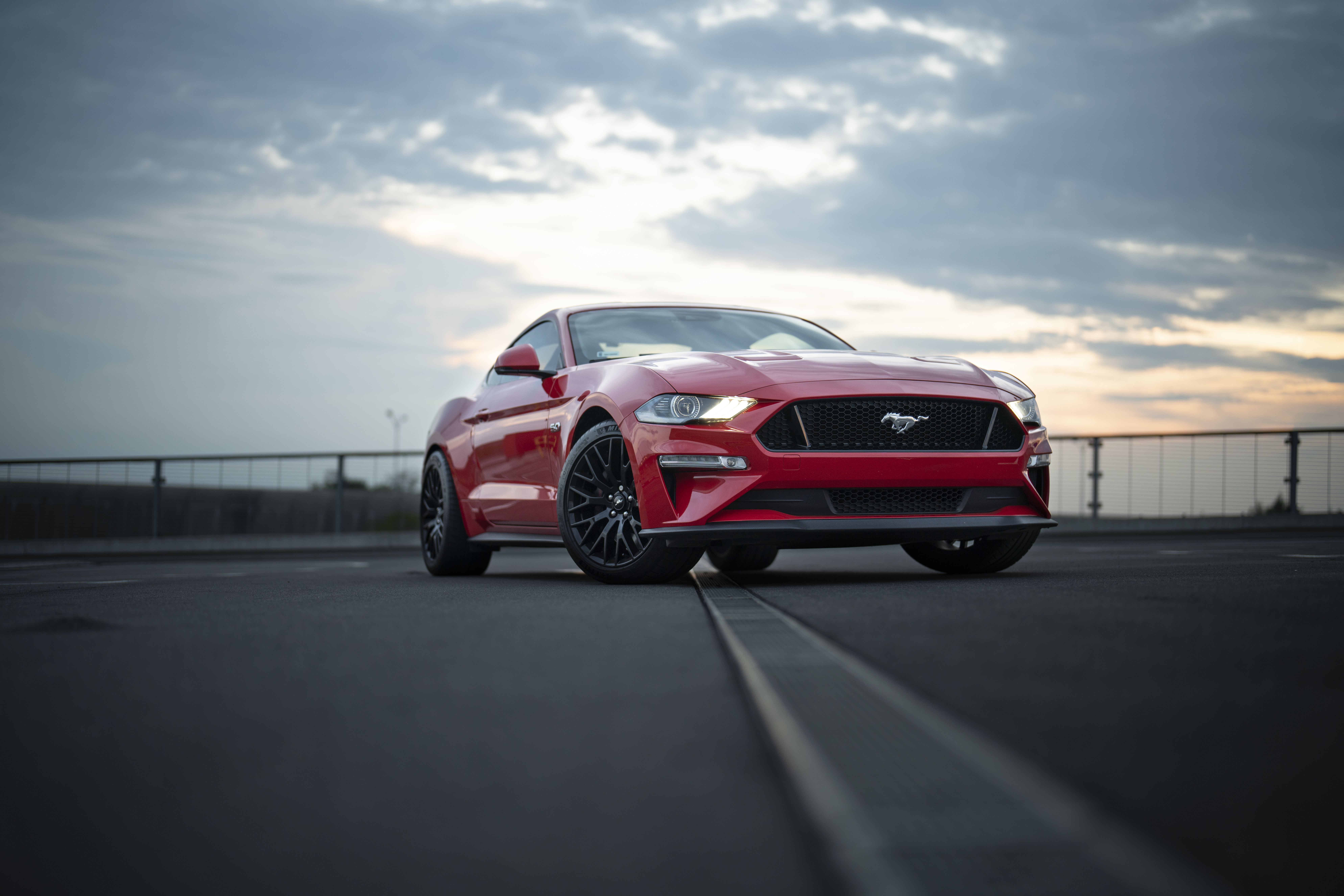Car insurance providers generally classify sports cars as lightweight, high-performance vehicles with luxury car price tags. Sports car insurance rates are about 58% higher than the average, but you can save money by shopping around and comparing quotes.
Owning a sports car will cost you more
A glance at the best-selling sports cars in the US clearly shows drivers’ appetites for tech, power and luxury.
Of course, those drivers also appear to have a higher tolerance for price, with the average cost of a sports car topping $51,000. And despite that premium price, sports car sales are still projected to climb by about 1% every year until 2028.
That initial price tag isn’t the only added expense, though: According to Jerry data, the average auto insurance rate for the most popular sports cars is just over $300 per month or $3,600 a year. That’s around 50% higher than the average for car insurance.
Our experts analyzed thousands of real car insurance policies purchased by Jerry users to calculate what actual drivers pay for sports car insurance. Here’s the average monthly cost of coverage for some of the most popular sports cars in the US:
|
Car Make and Model
|
Avg Monthly Quote
|
|---|---|
| Audi A5 | $329 |
| Chevrolet Camaro | $299 |
| Chevrolet Corvette | $274 |
| Dodge Charger | $346 |
| Ford Mustang | $275 |
| Jaguar F-Type | $357 |
| Mazda Miata | $125 |
| Porsche 911 | $284 |
| Toyota 86 | $319 |
| Toyota Supra | $404 |
Some major car insurance companies won’t insure a car valued at over $150,000. If you’re a high-value collector or hobbyist, look into a specialized insurance company for products like classic car insurance.
Best sports car insurance companies
One of the easiest ways to narrow down the best insurance companies is by gathering quotes and checking out industry and customer reviews. Jerry’s experts have analyzed the average cost of minimum liability and full coverage car insurance policies to help you narrow down the best sports car insurance providers in the country.
|
Insurance Company
|
Avg Monthly Quote
|
|---|---|
| AAA | $310 |
| Allstate | $227 |
| Bristol West | $338 |
| Clearcover | $205 |
| Mapfre | $182 |
| National General | $217 |
| Nationwide | $180 |
| Progressive | $225 |
| Safe Auto | $289 |
| State Auto | $255 |
Not all of these insurers will offer a specific “sports car insurance policy.” Instead, they will sometimes offer coverage on luxury and exotic cars up to a certain stated limit. Progressive will only cover vehicles up to a $150,000 value, for example, so while you can probably insure your Corvette, Charger or Mustang, you might have to look a bit harder to find a full coverage policy for your Murcielago.
What insurance coverage do I need on my sports car?
Most state car insurance laws require drivers to carry liability insurance against property damage and injuries you may cause to others. Drivers may also be required to buy additional types of insurance like uninsured motorist coverage and personal injury protection (PIP).
-
Coverage definitions
It’s important to understand that state minimum auto insurance won’t pay for repairs from an at-fault accident or provide total loss coverage if your car is stolen. Unless your policy includes collision or comprehensive coverage, you’ll pay this out of pocket. Also consider the average cost of car crash injuries, which average between $26,000 and $162,000 according to the National Safety Council. Additional insurance coverage can be valuable if you hurt someone else, are hit by an uninsured driver or are involved in a single-car accident.
These are all compelling reasons to consider purchasing additional coverage and/or higher liability limits for your sports car. If you have an auto loan, your lender may even require you to carry a full coverage policy and/or gap insurance.
“A general rule that I recommend is to carry enough coverage to protect your current and future assets – at least $100,000/$300,000 of liability coverage is recommended, but you may need more coverage depending on your financial situation.”

Why are sports cars so expensive to insure?
It’s all in the data: Sports car owners pay higher insurance premiums due to some average, statistical truths. These include:
- A higher likelihood of crashing. Sports cars accelerate quickly, and while that’s part of the fun, it may also make you more likely to crash. A previous study by the Insurance Institute for Highway Safety (IIHS) found that drivers were 38% more likely to go 10mph or greater over the speed limit when behind the wheel of a high-horsepower vehicle.
- Higher repair costs. Big engines, rare parts and lightweight body panels are expensive to repair or replace. In 2023, the average cost of repairing a sports car was over $18,000 — more than twice as much as a standard vehicle of the same size — while the average cost of replacing one was $53,180.
- A greater chance of theft. Recent data shows that higher-end, luxury vehicles make up seven of the 10 most frequently stolen cars. In fact, the Dodge Charger SRT Hellcat has a 600% higher risk of being stolen than all other passenger vehicles.
While higher insurance costs are common when driving a sports car, shopping around for quotes from multiple insurers can help you find the best possible rates.
Other ways to save on sports car insurance
Insurance premiums are calculated using many factors, including your age, vehicle, credit score, driving history and ZIP code. Each insurance company has its own calculation, so the cheapest car insurance company won’t be the same for each driver.
That said, there are some standard tips that can help most drivers save money on car insurance premiums.
- Bundle policies. Many companies offer auto and homeowners insurance bundles and discounts when you have multiple cars on the same policy.
- Look for discounts. You may qualify for reduced car insurance rates if you install an anti-theft device on your vehicle, complete a defensive driving course, maintain a clean driving record or don’t file any claims.
- Consider pay-per-mile insurance. If you don’t drive much (usually 10,000 miles per year or less), you could save money with a pay-per-mile insurance plan or even qualify for a low-mileage discount.
- Pick a cheaper car. If you’re still in the vehicle shopping stage, be sure to get quotes for insurance coverage before driving off the lot. Another sports car on your list may be much cheaper to insure.
Some drivers may try to save money by raising their deductible, lowering policy limits or dropping coverage altogether. While choosing a new deductible or reducing your liability coverage limits can be cheaper, it’s not recommended; the short-term savings could have long-term consequences if you need to file a claim.
FAQs
-
Is sports car insurance expensive?
-
What’s the best insurance for a sports car?
-
What’s a sports car to insurance companies?
-
Why is sports car insurance so expensive?
-
What’s the difference between a regular car, a sports car and a supercar?

Stephanie Colestock is a seasoned writer specializing in personal finance. With over 14 years of experience, she crafts insightful and accessible content on a wide range of financial topics, including insurance, credit and debt management, banking, investing, retirement planning, and household finances.
Her bylines appear in top-tier publications such as TIME, Fortune, MSN, Forbes, USA Today, Money, Fox Business, and CBS. Stephanie\’s deep understanding of complex financial concepts and her ability to communicate them clearly have made her a trusted voice in the industry.
When she’s not writing, Stephanie enjoys helping individuals make smarter financial decisions through her engaging and well-researched articles.

Kevin Berry is the Senior Director of Content at Jerry and has been working in the digital content space since 2011 across the car insurance/repair, personal finance, travel and sports industries. Prior to Jerry, Kevin was a content team lead at NerdWallet overseeing the Multimedia Production and Travel Rewards teams. Previously, he worked for NBC Sports, Comcast Cable and Nike. He has a Master`s Degree from Arkansas State and a Bachelor`s from Oregon State University.








